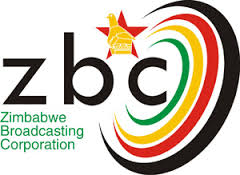Story by Sifiso Sibanda
Local milk production has steadily increased from just over 79 million litres in 2021 to the current 91 million litres, as the government pledges continued support to the livestock sector and milk production value chain.
Stakeholders in the dairy sector are on a drive to meet national milk requirements and export surplus.
Speaking on the sidelines of the World Milk Day celebrations in Bulawayo this Thursday Zimbabwe Association of Dairy Farmers Deputy Regional Chairperson, Mrs Dorothy Mupfanochiya said they have adopted a multipronged approach to growing the dairy herd.
“In our thrust to improve milk output, we are working on improving our herd and ensuring that we also do cross-breeding so that we also improve genetics and scale up our milk production from the current 91 million litres to over 130 million litres as we protect our industry from imports,” she said.
The largest milk processor in the country, Dairibord, is supporting farmers in restocking and animal health aspects.
“As the largest milk processor in the country, we support our farmers such that their herd remains productive and healthy. As such, we second technical services to them and support the growth of the herd so that the entire value chain is functional,” Dairibord Zimbabwe Brand Manager, Mr Archibald Chagadama noted.
Matabeleland North Provincial Veterinary Officer Dr Felistus Ndlovu noted the importance of the dairy sector in the growth of the national economy.
She said, “When it comes to the health of the animals and the administration of artificial insemination, we help these farmers because we have laboratories for these purposes and we continue to research on the animals that produce more milk and the necessary feed that is appropriate for dairy farming.”
Bulawayo Minister of State for Provincial Affairs and Devolution, Honourable Judith Ncube who was represented by Mrs Gladys Zizhou, said government will continue to support the dairy sector for increased production.
“Celebrating world milk day is a reminder of the importance of dairy products in the nutritional needs of the country and as such we as a government are committed to supporting both farmers and processors so that the nation does not import these when we have our farmers who have all the support from the government in their operations,” she said.
The national demand for milk stands at 130 million litres against the current supply of 91 million litres.




